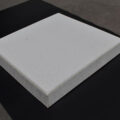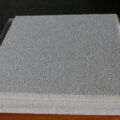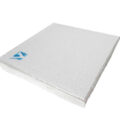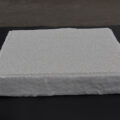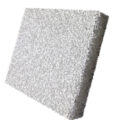Ceramic Foam Filter Alma Aluminum is suitable for casting aluminum alloys such as aluminum rods, aluminum ingots, and aluminum plates. Since the ceramic foam filter is used to filter the metal oxides and other solid slag contained in the molten metal during the casting process, thereby improving the quality and yield of aluminum alloy, the use of the ceramic foam filter promotes the technology of the foundry industry progress.
The main external manifestations of casting loss can be divided into two parts: one is in the form of pure aluminum ash, and the other is in the form of bulk aluminum, low-quality aluminum and aluminum slag.
From key components in the aircraft and automotive industries to household applications, aluminum cast parts are found in 90% of manufactured products and equipment.
However, in reality, molten aluminum used to produce metal castings often contains impurities and inclusions that are harmful to the final cast metal product.
At present, the filtration technology using Ceramic Foam Filters For Casting has been considered a successful method to reduce the inclusions in the molten metal during the casting of metal parts.
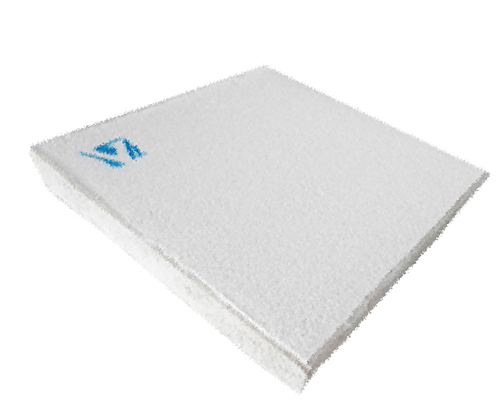
The working principle of Ceramic Foam Filter Alma Aluminum
It has two end faces, this end faces separate the space inside, and then each end face has some small holes.
Once the purified liquid enters the ceramic foam filter, it will flow from this end surface to the other end surface, and finally, be taken out from the outer peripheral surface. Its purpose is often used in the aluminum casting industry.
The Alma project was originally conceived by former owner Alcan to build a large smelter and further develop Quebec into a global aluminum center.
Alma includes the construction of a carbon plant, a reduction plant, a casting center and supporting infrastructure to produce a smelter with an annual production capacity of more than 400,000 metric tons.
ELYSIS announced that it has selected Rio Tinto’s Alma smelter in Saguenay-Lac-Saint-Jean, Quebec, for the first installation and demonstration of its 450 kiloampere (kA) inert anode technology, which is common in modern large smelters Capacity.
ELYSIS, a joint venture led by Rio Tinto and Alcoa, is committed to commercializing a new technology for producing aluminum that eliminates all direct greenhouse gases (GHG) from the traditional smelting process and instead produces oxygen.
As part of its technology development and scale-up, ELYSIS will install an industrial inert anode prototype battery at the end of the existing electrolyzer at the Alma smelter to demonstrate the effectiveness of the technology on a commercial scale in an industrial operating environment. This will build on ongoing work at the nearby ELYSIS Industrial Research and Development Center, which is also located in the Saguenay region of Quebec.
ELYSIS plans to commercialize its breakthrough technology in 2024 for retrofitting existing smelters and installing new facilities.





